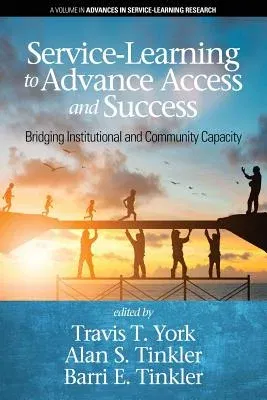Throughout the 90s and early 2000s, service-learning research was
intensely focused on the student outcomes. That body of research has
effectively brought service-learning from the fringes into the
mainstream of institutionalized pedagogies. In the past decade
service-learning research has experienced an infusion of exploration in
three distinct ways: first, large-scale quantitative methodologies;
second, a proliferation of research that has explored how different
sub-groups of students experience the pedagogy differently, thusly
resulting in variation among outcomes; and third, a focus on the
experiences and outcomes associated for communities and community
partners engaged in service-learning.
In an effort to support these movements, this volume of the Advances in
Service-Learning Research series, Service-Learning to Advance Access &
Success: Bridging Institutional and Community Capacity, focuses on how
service-learning can advance access and success. Not simply access and
success of students, but the ways that service-learning can advance
access and success for all through bridging institutional and community
capacity building. The chapters in this volume serve as a testament to
the ways in which service-learning research continue to be advanced by
thoughtful scholar-practitioners.
The 12 chapters included in this volume are organized into three
sections. The first section focuses on how institutional and community
partnerships can be leveraged to build community capacity. The second
section focuses on how institutions might build their own capacity to
effect change for the good of society. The third and final section
focuses on six studies exploring the relationship service-learning
pedagogy has with access and success for students. Of the six studies,
three are situated within the context of teacher-preparation programs.


